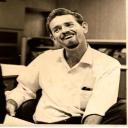Yahoo Answers is shutting down on May 4th, 2021 (Eastern Time) and the Yahoo Answers website is now in read-only mode. There will be no changes to other Yahoo properties or services, or your Yahoo account. You can find more information about the Yahoo Answers shutdown and how to download your data on this help page.
Trending News
When and why did this custom start?
It is not considered "proper" to applaud between movements of a symphony or concerto. Yet at one time it was ok. Does anyone know when and why this changed? Oddly, applause after big arias in opera is expected, even in operas where there the music flows continuously (e.g. Wagner, Puccini) and the orchestra has to stop to wait for the applause to finish. But in a symphony or concerto, when there is a complete stop to the music, it's a no-no. At a concert tonight, the audience applauded after the first movement of the piano concerto played by Yefim Bronfman. At that point he stood up and took a bow, and made as if to leave the stage. The conductor joked "there will be three encores (the concerto has 4 movements). The program notes said that applause between movements is "...something that priggish custom now forbids."
I would appreciate any comments or suggested references.
I seem to recall from some talk or article that the custom started because some very prominent 20th century conductor didn't like the applause and showed his disapproval (to the audience). But I'm not certain of that.
It's interesting that many of Wagner's operas avoided "set piece" arias and didn't give an applause opportunity, so any applause would be disruptive of the music.
5 Answers
- petr bLv 71 decade agoFavorite Answer
According to part of your question, the ban seems to have spread like a disease from the original spore of Wagner.
Here is an article from a New York Times Music Critic (he also attributes it first to the Genius-Tyrant of Bayreuth)
http://www.therestisnoise.com/2005/02/applause_a_r...
I understand the newer tradition was taken to an extreme in Russian Opera audience convention: No applause after arias; No applause after Scene 1; no applause after Act 1. The applause only takes place at the end of the entire opera.
Whether it is immediately after a rousing allegro forte finale or a stunning deeply moving pianissimo adagio, immediately thereafter I would love more than anything a minute or two of silence.
best regards, p.b.
- suhwahaksaengLv 71 decade ago
I've wondered the same thing myself. I understand that Wagner disapproved of the custom of applauding after arias.
Customs having to do with applauding can be nonsensical. I feel as if I'm being hypocritical by applauding when a performer comes out if I haven't heard the performer before. In such case, how do I know he or she is a good performer?
Here in Korea, the performer comes out, take a bow, and then the audience applauds. Someone tried to explain that to me, but I still don't understand it.
- AlberichLv 71 decade ago
"NellyE" has posted one very good explanation I think; but there're probably others.
Ever since the end of WW I, public musical performance etiquette has undergone something of a revolution: this cataclysmic event brought about the ultimate demise of the ancient European social class structure; and with it, the way everyone interacted in a public setting.
Even though some had before attempted to curb the at times rather raucous/uncooth behavior of audiences during the prewar era, such as Wagner as noted by one of your responders, little success was had; Wagner himself had to appease the prevailing attitude of the dominant Parisian opera supporters by inserting a ballet in the 1st act of Tannhauser for its Paris premiere - they demanding one always for the 2nd act, but he was unwilling to go that far: one simply wouldn't "fit" into the plot at that point.
Nevertheless, Tannhauser was withdrawn from its performance schedule, and the composer and critiques considered it to be a failure primarily because of this incumberance.
Even so, an evolution of refinement regarding protocol has evolved in public artistic gatherings; which has effected those of classical music as well as exhibitions, etc.
A final note relating to Wagner. At the Bayreuth performances of his last opera "Parsifal", he intended this work to be an ultimate spiritual/religioso (if you will) experience for those attending; and originally forbade any applause whatsoever during a performance: but later if my memory serves me correctly, applause after the 2nd act only was reluctantly permitted.
An additional tidbit: he also meant for it, "Parsifal", never to be performed anywhere outside of Bayreuth; but due to un-accommodating legalities - questions of copyright being the principal one I think - his intentions as we all know and gratefully I might add, were circumvented.
Alberich
- Anonymous1 decade ago
I have it on good authority, that this comes from misinterpretation by the actors/singers. AT the time, people would "clap" people of the stage if they hated the performance, and so clapping DURING a performance, wasn't interpreted as a form of praise. This changed Opera protocol, and affected they way people showed their affection towards the opera/show
- JoshuaLv 41 decade ago
I really hate that custom, as well.
It's like I have heard the 2nd Movement of Dvorak's 9th Symphony and I just feel like I want to get up, yell with joy and clap until my hands fall off, but I can't do that. I have to wait until the end of the Symphony.
I honestly couldn't tell you how it started.





